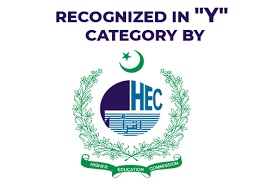Exploring the Scope and Socio-Economic benefits of Bay’ Salam for the Agriculture Sector in Pakistan
Abstract
 Abstract Views: 244
Abstract Views: 244
The socio-economic conditions of a vast majority of small farmers in developing and poor countries are miserable. There are various factors which hurt poor farmers like the shortage of water, costly seeds and fertilizers, poor patronage from the government, olden cultivation techniques, illiteracy and lack of training. These problems no doubt hurt the farmers at large. The lack of credit is one of the most serious issues which not only impedes the agricultural performance but also the welfare of farmers. The existing credit schemes for farmers in Pakistan have many demerits. Among them are exploitative conditions, interest-based, access-difficult and cumbersome procedures. Islam, in the form of Bay’s Salam, provides an alternative credit system that is not only much easier but also free from exploitation and many ills of conventional forms of credit. With the exception of the last century, Bay’ Slam had been practiced widely in many Muslim countries and had served the poor farming communities effectively. This paper analyses the potential and scope of Bay’ Salam as a substitute to the existing forms of agricultural credit using secondary and primary data.
Downloads
Authors retain copyright and grant the journal right of first publication with the work simultaneously licensed under a Creative Commons Attribution (CC-BY) 4.0 License that allows others to share the work with an acknowledgement of the work’s authorship and initial publication in this journal.












